‘All things come to he who waits’ goes the saying and in Thine’s case, it feels particularly apt.
Back in 2002, the band’s star was very much in the ascent. 1998’s eclectic and well-received debut ‘A Town Like This’ was followed up in 2002 with the emotive ‘In Therapy’ album, a record that positioned Thine alongside luminaries such as Anathema and Katatonia – bands that had taken the doom metal template and gradually morphed it into more atmospheric, rock-based territories. Boasting astute songwriting and a real sense of identity (thanks to Alan Gaunt’s distinctive, soaring vocals), it saw the band poised to really take off.
And then… nothing. Live shows were scattered here and there but gradually, Thine’s presence seemed to fade away and many (this scribe included I have to say) simply assumed the band had finished. How wrong I was. Teasing announcements made via social media last year underlined in no uncertain terms that a new Thine album was in the offing – and then here we are, in 2014, with the first official Thine album for 12 years in our eager hands. Titled ‘The Dead City Blueprint’, it’s an ambitious, wide-ranging work embracing a variety of textures. Clearly the work of the same band that committed ‘In Therapy’ to tape, it nonetheless expands significantly upon what has come before whilst retaining the character of the band’s sound. Intrigued, I spoke to founders Paul Groundwell (guitars) and Alan Gaunt (vocals) to find out a little more about what inspired the band to return with another full-length after such a long gap.
AN: Thanks for the interview and welcome back! I guess this first question is fairly predictable but nonetheless, it’s been 12 years since the last album ‘In Therapy’ – what’s the reason for such a long period between records? I assume the band was on hiatus for a time?
Paul: Cheers. Strangely we never actually split up. Life responsibilities crept in, some disillusionment perhaps too because In Therapy was very well received critically but we felt we were held back somewhat on certain (budget-driven) matters. But time has just flown by, scarily so. We played live for a few years after the last album, then everything seemed to get gradually more quiet, with more infrequent rehearsals. We did keep in touch though and I kept writing all along and developing that aspect, and the others were getting to hear these rough demos as well, so behind the scenes it was always slowly simmering, let’s say, then it was just a matter of stars aligning and the right moment coming to make us active and build momentum again.
Alan: Disillusionment… Circumstance… Both of those words say so much, some caused by the self and some by others whether intentionally or not. However it is amazing that it’s been 12 years but time and tide wait for no man, I’d have to quote Jacobs Ladder “The only thing that burns in Hell is the part of you that won’t let go of life, your memories, your attachments. They burn them all away. But they’re not punishing you, he said. They’re freeing your soul. So, if you’re frightened of dying and… and you’re holding on, you’ll see devils tearing your life away. But if you’ve made your peace, then the devils are really angels, freeing you from the earth.”
AN: If this is the case, was there a particular trigger for the band getting back together and working on a new record?
Paul: We actually recorded a 3 track demo in 2011 (I think) to show we still had the chemistry and potential, and that demo included what became the first song on the album, Brave Young Assassin, in a more primitive incarnation. That was the start of it really I’d say, then a very creative period came the following year, and with Dan, our drummer, doing some engineering work at Academy Studios, it seemed things did indeed align for us, and off into the mire we sailed.
Alan: As Paul mentioned earlier we all kept in touch in some way through the years. I remember a conversation with Dan one night over a few beers and the whole idea felt like it would be closure on something not quite right with our past and the chance to either finally move on or rediscover what Thine had meant to be in the first place, the next time we saw each other was in a rehearsal room ‘testing the waters’ so to speak with the 3 track demo following shortly after.
AN: Is this very much the ‘return’ of Thine? You guys were a fairly active force back in the late 90s/early 2000s – can we expect to see live dates and more regular recordings in the future or is this very much an ‘as and when’ project?
Paul: We’re a fully functioning band currently for sure and have been for a while now even though it was more behind-the-scenes, but for whatever reason it has just been difficult for us to be consistent in a studio-visit sense (maybe this is down to the amount of work on perfecting songs, rather than flinging any old shit at the wall just because you are booked in a studio). We do have something possibly lined up in the coming months for live, so fingers crossed for that, though can’t confirm anything.
On further recordings; there are plenty of new songs already, so we expect it won’t be so long until we are in the studio again, though I’m sure we thought that last time! Momentum is sticking around currently though.
Alan: We’ve been preparing to be a full working band for a little while now, given the chance I hope we can stick around for a while.
AN: So, to ‘The Dead City Blueprint’, a record that really impressed me with its depth of expression and real sense of emotional maturity. What was it the band set out to achieve with this release? How long did this material take to come into being?
Paul: Thanks a lot. In a way it has been one long journey since In Therapy in developing and evolving this style. Didn’t want to make another straight-ahead rock album like In Therapy, so began to incorporate more experimental elements and various styles again, like we used to. Many many songs were written over the years, and then discarded in 2012 which became a very dark yet productive period for myself. Digging deep, and all of the featured album tracks (except Brave Young Assassin, made around 2003) were made in about 7 months. As far as what we set out to achieve, I’m not sure. More a cathartic process personally with an ultimate sense of vindication and liberation somewhat, and a diary/reminder of a chapter of life, but what it all means for each of us will vary. I’m sure there is a slight element of triumph over adversity for most of us though.
AN: Did the extended time between records give you a sense of freedom when working on the material or did you feel a sense of pressure to justify the time away?
Paul: It was all just a continued natural progression. If you could hear all of the songs written in those silent years it would be more logical, but of course when the product, the album, is the only reference point then it might seem a significant leap in style or quality over the prior release(s). In Therapy part 2 was never on the cards for us though. I think we had enough confidence in these tracks thankfully to not be so pressured. Like we had something worthy of sharing with the wider world. Of course it is interesting to note the reactions of people, but it’s all incredibly subjective anyway, and you just have to accept that one person’s taste is not another’s.
Alan: It always feels a little odd to know there are people out there who follow us, I know there are people who genuinely enjoy what we do and for that I am grateful but I doubt we could ever have to justify ourselves, there will always be something new to sate the appetite for us all and everything dies someday. In this day and age with so much information to process I guess our ‘return’ is a welcome bonus for our fans ears. The freedom for me comes from walking away from much of what I knew including music.
AN: Is there a lyrical concept running throughout ‘The Dead City Blueprint’? As a listener, I can sense a consistency of emotion running through the record despite the variety of soundscapes and textures that are explored musically. Is this intentional?
Paul: Certainly correct there, though not consciously intentional, just an inescapable consistency between tracks because they all simulate and represent a particular (and linked) portion of time. It’s all very real. It is raw and digging deep as I said. Themes of loss and of detachment, mortality and forced introspection/retrospection. No fake bravado or any of that. Fine for other bands and their show, but it just doesn’t interest me.
AN: The album seems to flow quite nicely from the more alt-rock of ‘In Therapy’. Both albums seem to speak of a vague disaffection with modern existence and an existential yearning for something ‘more’. Not melodrama or theatrical despair/melancholy but more the listless depression that echoes throughout records such as Katatonia’s ‘Discouraged Ones’. Would you agree with this? What atmosphere are Thine trying to conjure within the minds of their listeners?
Paul: It’s more a portrayal of an ongoing struggle with flickers of light at the end of the corridor. Always some light. In Therapy was the same. You will be kicked down but get up again continuously whether out of will or defiance in order not to be broken. Explore the dark corners and experience them to appreciate the better days whilst embracing and learning from everything which transpires in between. To me it feels like In Therapy existed at street level and our struggle amongst others, this is more psychological and a study of our own resolve.
But yes, lots of contempt for modern existence here, or more a disassociation with it, and where we are heading. And I agree, a sense of (temporary) depression without melodrama is how we seem to project ourselves, though remaining optimistically pessimistic.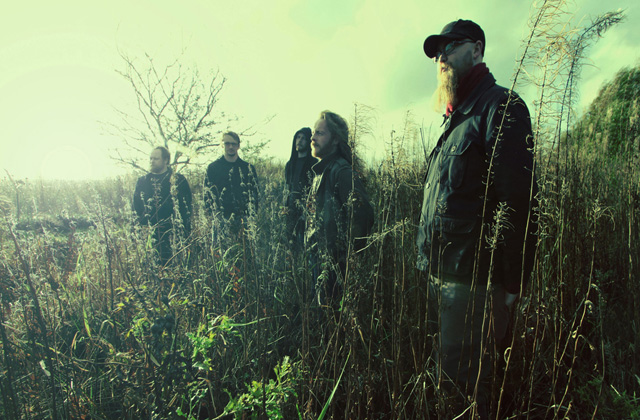
AN: Indeed, I remember when ‘In Therapy’ was released that it reminded me a little of Katatonia at the time – are they an influence at all? What other bands are an influence on both the sound and outlook of Thine in 2014?
Paul: Yes, we did get a few comparisons to them on that album, which is fair enough. I don’t remember them being a direct influence at the time, though we were certainly listening to and respecting what they were doing. I think there was some of that to the stripped down mid(ish)-tempo rock, plus the melodic guitar layers. So yes, back then there were bits of Katatonia & Anathema, plus Tiamat’s “Cold Seed” is a good indication of how the style was shaping on the lead up to In Therapy. Influences now are pretty much nothing, as I feel we’ve evolved enough to carry our own style and ideas forward.
Alan: I can see us being asked variations of that question for some time to come yet, I personally wouldn’t add them as an influence but they were in my sphere of experiences back in the old days. I’m always the wrong person to talk to about bands and influences, music is a little like football, most guys can chat endlessly about this team and that, who did what and when, I just don’t think that way. I think the better way to admire any influence is through the level of experience and it’s been very lacking in the music arena for many years with myself which allows for things to be more natural I hope.
AN: What are your views on the changes within the music industry over the preceding 12 years? Many bands and labels lament the impact of illegal (and legal) downloading/streaming on their ability to fund their art. Is this a concern?
Paul: It is indeed a concern. I think the problem is also that 98% of us are hypocrites too. I lament all the download/youtube tragedy, but if I want to hear something I’ll be on youtube to check it out. It has promotional benefits for sure, but really I think it would be better had it never existed, and certainly torrent sites. But yes, there has been a constant decline in sales, even with the resurgence of vinyl… and things like spotify?…well, just ask Scandinavian distributors in particular about that one.
But, our evolution is one of escalating convenience isn’t it. Everything we ever want at our fingertips. Wait for nothing, have everything. Hear anything you like when you like. I thought the thrill was in the anticipation and the hunt. Lazy hunters are we these days, heh – don’t even have to step outside the door.
The whole mentality has changed. How new generations obtain and digest music is completely different. Yes, great to be a supporter of a band by going to their shows and buying their shirts, but not buying the albums means there likely won’t be a tour next time anyway, because there won’t be the budget to record another record to promote, unless it gets crowdfunded. Complete shift in business, and I’m not sure people realise the knock-on effect and how many areas of the industry are suffering. If everything gets crowdfunded then there’s no real label involvement (and no real need for distributors), so unlikely to be any marketing, so unlikely to be any ads or bought features in magazines, so all print press goes out of business. Music journalism as it was will be taken over by the myriad of experts on forums.
AN: What about the musical developments within the atmospheric metal and doom metal genres which to my mind are the metal styles to which Thine seem most aligned. What bands and records have really stood out to you in the last decade or so?
Paul: Nothing much in those styles comes to mind immediately – Jex Thoth, though in others – The Devil’s Blood & Selim’s other works I liked a lot. Was clearly a talented guy. Hexvessel’s good, but non metal. Heard some Purson which was good (way too much retro stuff lately though. Some decent bands such as these, but the deluge will kill most of it off as a trend)…….Barren Earth are great for the death/doom/prog/folk stuff. A nice atmospheric metal song is Ghost Formula by <Code>.
But just lately I’ve been listening to Focus’ ‘Moving Waves’ from the early 70s, and ‘Clandestine’ by Entombed as has been the case for over 20 years.
AN: As for non-metal influences, what artists from outside the metal spectrum have most heavily influenced the Thine sound? The sense of urban anxiety in the last two albums really brings to mind the early-mid-80s post-punk/new wave scene, is this something that has influenced the more recent material?
Paul: Yes, strange, as I don’t know what the influences would be at all. Hardly anything conscious that I know of. I heard 4 seconds of a Kate Bush song and there was a nice progression which ended up developing into a song.
Sometimes it is the idea of what a band’s music represents to my mind rather than the actuality, so any influence is very rarely directly taken from music, more a perception. The fabric of Thine could reference acts like REM a bit though. Some stuff like Paul Simon perhaps. Bit of Nick Cave in the past, The Doors, 80s power ballads even. Quite a lot of 80s music I’d say actually.
Alan: Apart from Swit we were all born at the end of the 70’s so we were exposed to what was out at the time I guess which is why we walked into the Norwegian black metal scene at a ripe time during our teens. I do remember one of the popular teen household rituals in the UK in the 80’s/90’s was to record on tape (yes, old cassette tape recorder/radios, of which one was used for Thine’s very first recording) the ‘Top 40’ on the Radio early Sunday evening, every week. I’m unsure about Paul but we both had older sisters, I know mine played a lot of her recordings through the week, I couldn’t tell you the names but I could sing you sections of songs.
AN: How about the shoegaze movement? Some of the more textured and layered sections of the most recent record bring to mind the work of Slowdive, early Verve e.t.c.
Paul: Again, blissfully ignorant of that, generally and was mainly from old Katatonia going back to ‘Day’ that I became aware of that style. The more I/we listen to, the more likelihood there is of us absorbing too much of others. But we don’t mind comparisons to texturally rich bands such as that if it helps describe us.
Alan: It’s only recently I’ve heard of the Shoegaze movement, I’m sure comparisons can be made here and there. As and when instances pop up along the way I’ll be sure to check it out, you never know
AN: On reflection, the biggest stylistic shift in the band’s career I guess took place between the ‘A Town Like This’ debut and ‘In Therapy’ – particularly in respect of Alan Gaunt’s vocals which really reigned in the theatrics for a more measured, melodic approach. Is it possible to recall what inspired this change?
Paul: It had to happen, because that style of singing on the debut simply could not work on the emotion-driven songs which were to follow. It would’ve been just too jarring and painting the wrong pictures (or the right pictures in the wrong colours). It worked very well on the first album, as that was quite image-heavy and strange with the lyrical depictions, and each song was intended to be like a short film, made up of ‘scenes’ with a dark and bizarre script, so the vocals in a sense were acting purely as a narration to envelop the listener in this weird world, but as the songs developed and became more human, and existential, the vocal had to adapt accordingly to portray the right emotions to the listener. Had to emit a sensitivity over that previous bombastic execution.
Alan: Again it was all very natural. The vocals for ATLT reflected much of what had been going on in my life up till that moment I suppose. Much of my childhood up till late teens was filled with acting and singing so not surprising the approach was very different to In Therapy from that point of view but of course as Paul says the second album was different in itself, it was more of a band rather than ‘artists’. In terms of ‘change’ you could say I had my moment of self abandonment around the time, it’s a good album but I struggle to listen to it.
AN: Going back to those days, my first encounter with Thine was at the (now defunct) London Astoria 2 in 1997 supporting Primordial and Mayhem, one of my earliest London gigging experiences. Do you remember that show? Was it a good one for you guys? On reflection, it seems like an interesting and eclectic mix of bands on the bill and something of a landmark event being (I believe) Mayhem’s first London appearance.
Paul: Those 2 Mayhem shows were actually our first gigs ever, so what a way to begin, heh. Some of us had been Mayhem (and Primordial) fans for years, so in that respect it was great. I think it was possibly Rich from Solstice who had apparently put our name forward to Tiziana at Misanthropy Records (Mayhem’s then label) which led to us playing. We had just signed with Peaceville too so we felt like it was the start of a long journey for us. I remember the crowd was pretty large, even when we were on, haha, but since we have a ‘singer’ singer and were not much in the way of extreme metal, it was probably hard for some to digest (even though there were riffs in there inspired by black metal). Fair enough. I would likely have felt the same. Good opportunity for us anyway, and of course memories like that stay with you. Mayhem even used my guitar for the last part of that gig after breaking a string. Still got that guitar (with scratch marks, cheers), so nice to know it has had some bona-fide Mayhem riffing action.
AN: What is your view of the current UK metal scene? Do you feel a sense of kinship with any bands that are currently active?
Paul: We just completely do our own thing, though saying that, Dan has some contact with other UK bands as the networking man. And naturally we have some links with My Dying Bride.
AN: Going full circle, what is next for Thine? Do you have any specific plans (such as a tour to support the new record)?
Paul: Possible European tour dates in the summer. We need to get some good UK shows booked though, and likely later in the year we’ll take a look at playing some new tracks with a view towards the next recording session. Should be shooting a video soon too, plus we’re looking to release an EP (likely digital) which will include the 4 songs which didn’t make the album, plus re-workings)
AN: Well, that’s the end of my questioning now. Thank you for your time and the last words of the interview are yours.
Paul: Thanks very much, Frank. Hope people can be curious enough to check us out. What is there to lose after all, but a little time and sanity.
Interview by Frank Allain
https://www.facebook.com/ThineUK

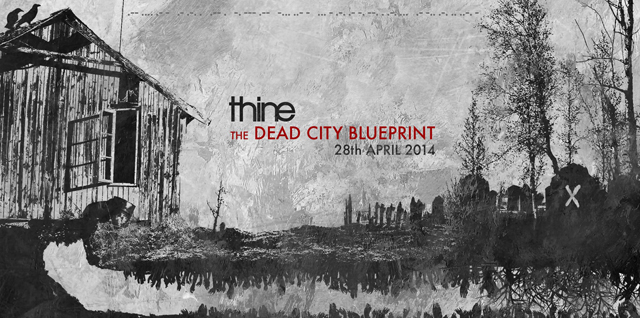
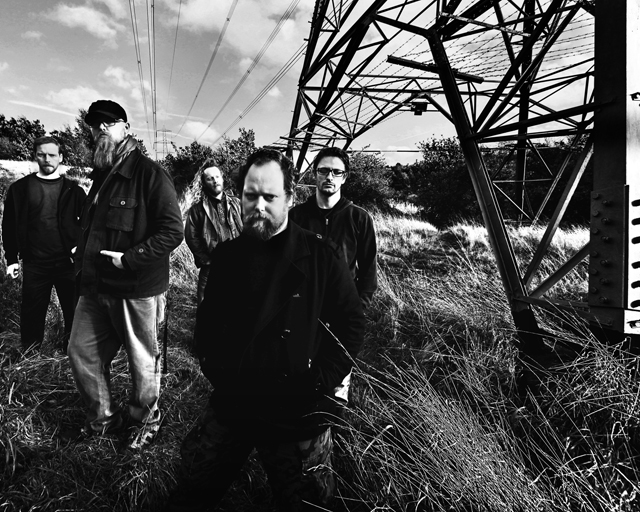
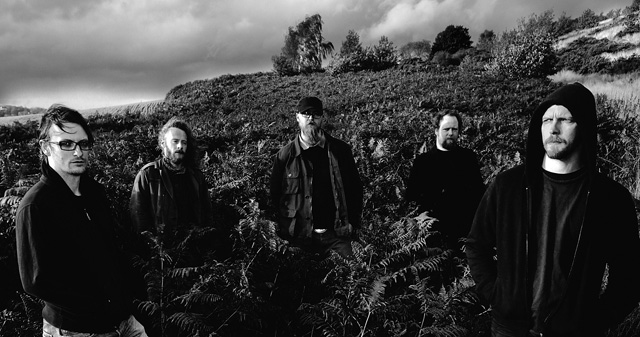
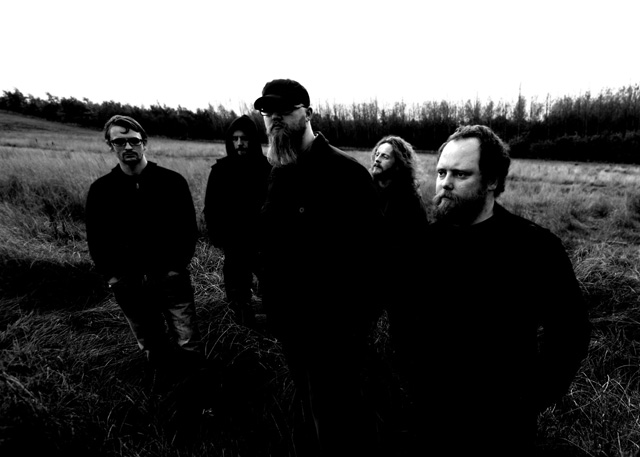
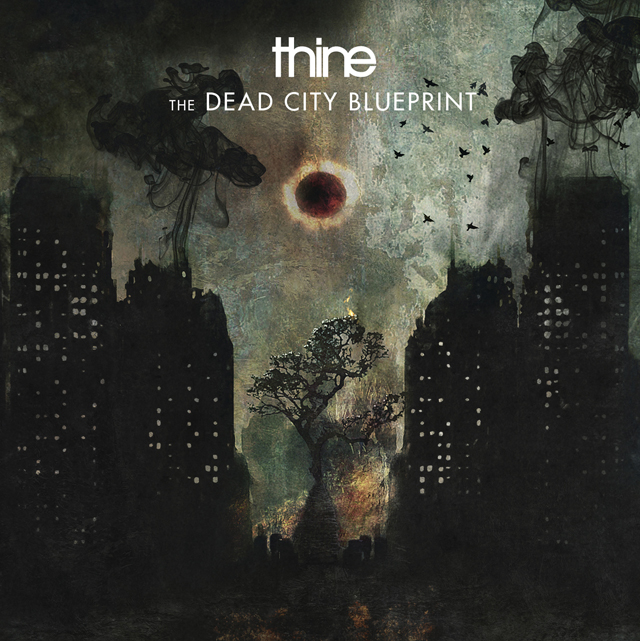
Leave a Reply